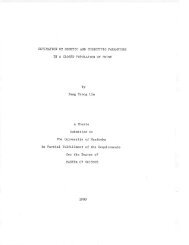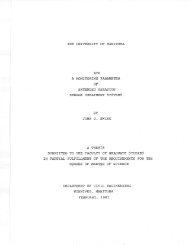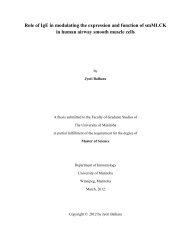A STUDY IN LEGAL ADMINISTRATION AND RECORDS SHARON ...
A STUDY IN LEGAL ADMINISTRATION AND RECORDS SHARON ...
A STUDY IN LEGAL ADMINISTRATION AND RECORDS SHARON ...
You also want an ePaper? Increase the reach of your titles
YUMPU automatically turns print PDFs into web optimized ePapers that Google loves.
confomed to the wrong for which he sought redress. If the writ was inexact he<br />
could be denied further access to a remedy. In addition, the writs were so<br />
expensive that many injured parties could not Mord to initiate a suit.'<br />
There was another difficulty with the administration of justice. men the<br />
common law was in its formative stages, judges had considerable flexibility in<br />
administering the law. They could make "equitable" decisions, citing the<br />
authority of "natural law" and "God's law." In the thirteenth century judges began<br />
to refer to preœdent or decisions taken previous~y.~ Reliance on precedent<br />
increased, even though this method was often too rigid to accommodate the<br />
dispensing of fair justice. The restrictions of the Latin writs, the inflexibility of<br />
precedent, and other problems forced plaintiffs often to petition by English bill<br />
directly to the king for reliefs and remedies allegedly not available in his common<br />
law courts (King's Bench, Common Pleas, Exchequer). By the mid-fourteenth<br />
century, to alleviate the situation, the king had delegated hearing the growing<br />
number of direct petitions to his Lord Chancellor, who in tum created a fonnal<br />
Court of Chancery, also known as Court of Equity or sometimes of Conscience.<br />
Equity has more than one meaning. Frederic W. Maitland declared equity<br />
to be a "gloss," or a collection of appendices to the law.' Henry Maine spoke of<br />
equity as "any body of niles existing by the side of the original law, founded on<br />
distinct principles and claiming incidentally to supersede the civil law in virtue of<br />
a superior sanctity inherent in those princip~es."~ He explained that equitable<br />
doctrines often develop when the law does not change to meet the needs of



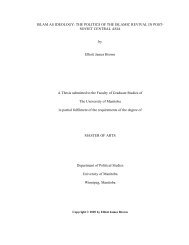
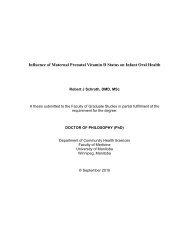
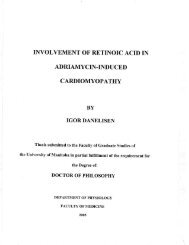
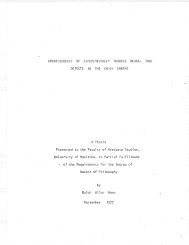
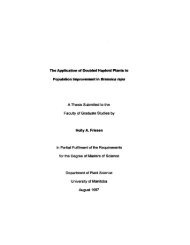
![an unusual bacterial isolate from in partial fulf]lment for the ... - MSpace](https://img.yumpu.com/21942008/1/190x245/an-unusual-bacterial-isolate-from-in-partial-fulflment-for-the-mspace.jpg?quality=85)
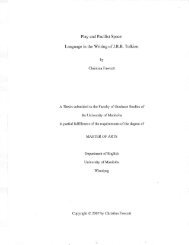
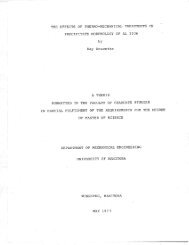
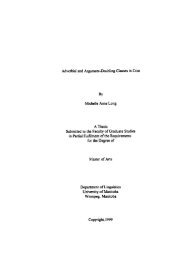
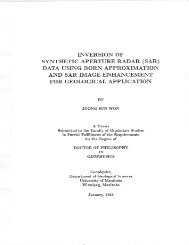
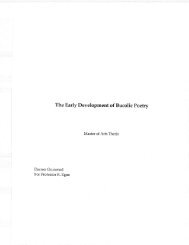
![in partial fulfil]ment of the - MSpace - University of Manitoba](https://img.yumpu.com/21941988/1/190x245/in-partial-fulfilment-of-the-mspace-university-of-manitoba.jpg?quality=85)
